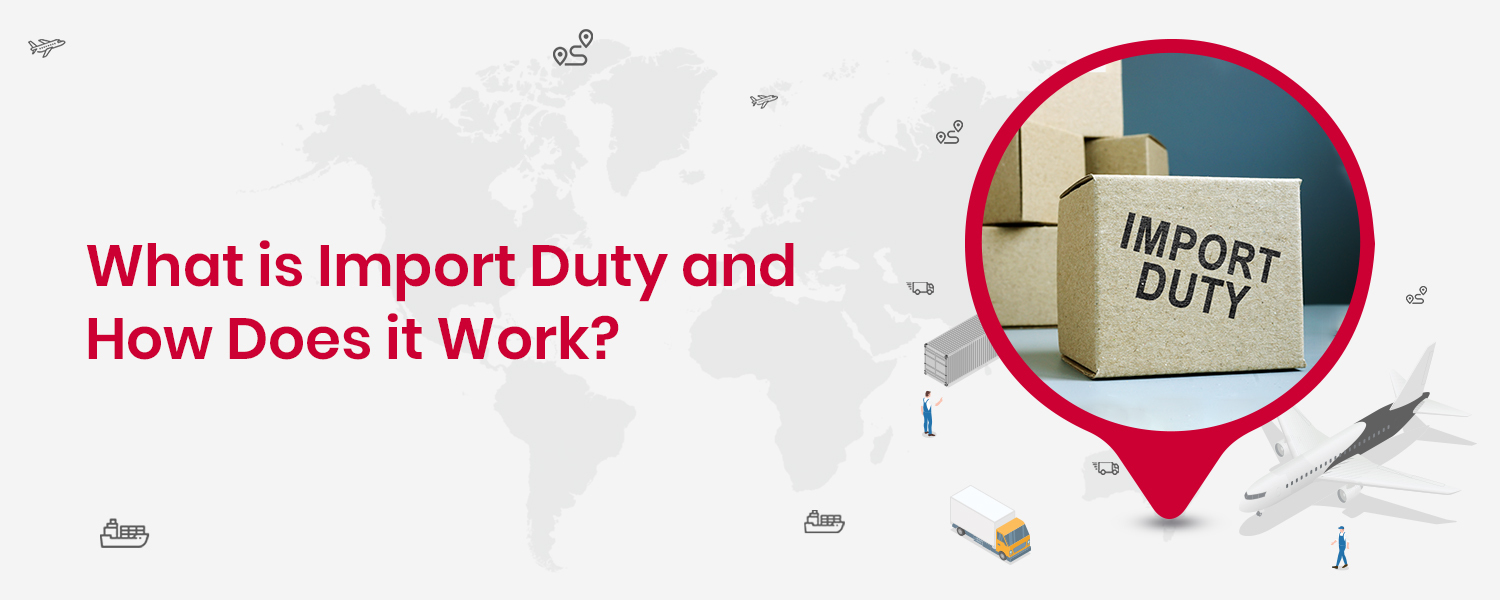Import duties are the unspoken hero or villain, depending on how you see it in the international marketplace. And if you’re an eCommerce entrepreneur that deals with international goods, you should be aware of the potential impact it could have on your bottom line.
Today, we’re diving deep into the nitty-gritty of import duties, pulling apart the complexities and intricacies that can make or break your profit margins. We’ll tackle key questions that every international business owner should know the answers to.
What are Import Duties?
The term “Import Duties” refers to the taxes imposed on goods imported from foreign countries. If you’re in an eCommerce business that deals internationally, this is a term you simply cannot afford to misunderstand. Import duties can be manifested in multiple forms, each with its own set of rules, calculations, and implications.
You might be wondering, “Why do these duties exist in the first place?” The reasons are twofold.
Firstly, import duties act as a revenue stream for local governments. Every time a product crosses a border, the government sees an opportunity to collect funds that can be invested back into the economy.
Secondly, duties protect domestic markets and industries from being overwhelmed by cheaper foreign goods. For instance, higher duties on imported automobiles make domestically produced cars more competitive in pricing.
How Import Duty Works in India
Key Terminology
Customs Duty: A tax levied on imports and exports of goods.
Tariff Code (HSN): Harmonised System Nomenclature, a globally recognised system for naming, numbering, and classifying traded products.
Basic Customs Duty (BCD): The core tax levied specifically on imported goods.
Classification of Goods
The role of the Harmonised System Nomenclature (HSN) or Tariff Code is instrumental in the entire process of importing goods into India. This globally standardised system of names and numbers classifies traded products and determines their corresponding duty structure. Knowing the right HSN code is crucial as it directly influences how much customs duty you’ll have to pay.
Calculation of Import Duties
Customs duties are not flat rates but are calculated based on various parameters. Many traders use Custom Duty Calculators to get an initial estimate. However, the most reliable source is ICEGATE’s own custom duty calculator, which factors in the origin country, item description, and value to provide a fairly accurate estimate. While the origin country can impact duties due to various trade agreements, the item’s description and value are self-explanatory but equally critical.
Payment Procedures
The payment of customs duties has been streamlined thanks to digital transformation. While traditional methods are still in use, the government encourages e-payments, particularly through ICEGATE. The portal simplifies the process, from selecting the e-payment option to receiving a digital confirmation receipt, making it secure and efficient.
Current Rates of Import Duties
The prevailing rates of customs duties vary depending on the type of goods. The import VAT in India ranges from 5% to 28% but most goods and services are subject to a standard rate of 18% under GST. Moreover, some special items may also have an additional compensation cess, as specified by the government. Keep an eye out for any recent modifications in duty rates, as they directly impact your bottom line.
eSanchit
eSanchit plays a vital role in digitising the taxation system, making it seamless for traders to submit documents electronically. The eSanchit platform benefits both importers and exporters by expediting the clearance process and minimising manual errors.
Exemptions and Special Cases
There are conditions under which customs duties can be exempted, especially for essential medicines, strategic items, and goods covered under various bilateral or multilateral trade agreements. Understanding these exemptions can result in significant cost savings.
Who is Responsible for Paying Import Duties?
The Importer of Record (IOR), often, this is you—the business owner or individual who’s bringing in the goods. The IOR is legally bound to pay the Import Duty at the time of import. You’re the one accountable for ensuring that all goods are legally entered into a country as per that nation’s laws and regulations. The IOR doesn’t necessarily have to be the end consumer or the business owner. Many companies specialise in acting as the IOR for a fee, taking on all the responsibilities and liabilities. This is especially useful for businesses that don’t have the internal resources to manage complicated international import processes.
Companies like NimbusPost often act as the customs brokers who handle the red tape, navigating through the customs regulations on your behalf. In many cases, these companies will pay the necessary import duties upfront and then bill you later, streamlining the process and ensuring that there are no costly delays.
They take on this responsibility, knowing well the intricacies involved, hence saving you from a logistical nightmare. However, this service isn’t a charitable act; it typically charges a fee for it. So, while they facilitate the process, the financial responsibility ultimately falls on you, the importer.
Conclusion
International shipping might seem like steering a ship through a storm. Yet, as we’ve uncovered today, understanding the dynamics of import duties can lead your eCommerce business toward profitability while avoiding the legal repercussions.
With technology-driven platforms like NimbusPost on your side, you have the privilege of hassle-free custom clearance, making the import-export business far less daunting. NimbusPost can simplify calculations, automate processes, and flag potential compliance issues before they turn into costly errors.
So, as you set sail into the global market, let NimbusPost be your North Star, guiding you through the challenges and opportunities. As you’re in the import-export business, here is a comprehensive guide on import-export codes and export incentive schemes.




